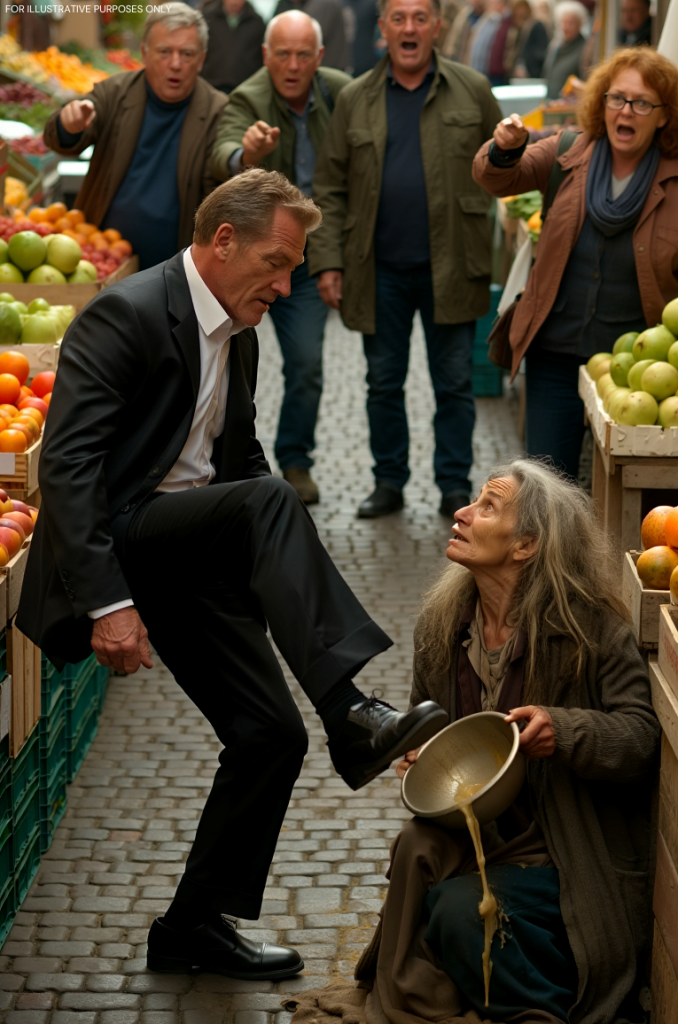Olivia | September 29
Leonard Falkner, a wealthy entrepreneur in his early forties, walked briskly through the crowded marketplace of Brighton, England. His tailored suit and polished Italian shoes gleamed against the rough cobblestones, out of place amid the scent of ripe fruit and freshly baked bread.

He seldom visited such places. Leonard’s world was one of glass towers, country clubs, and quiet car rides with tinted windows. Yet today, business had forced him to cross through this noisy maze of vendors and voices.
As he wove through the crowd, his gaze fell upon a frail woman sitting near a bakery stall. Her clothes were threadbare, her hands trembling as she reached out to strangers. Her voice, cracked and weary, pleaded, “Please, sir… a little bread would mean the world.”
Annoyance flared within Leonard. He hated reminders of the poverty he had once known—cold nights in foster care, empty plates, whispers of abandonment. To him, beggars symbolized surrender, weakness. And weakness was something he had spent his life crushing.
“Move aside,” he muttered sharply. When the woman’s hand brushed his trouser leg, he lashed out, thrusting his foot forward and striking her shin.
She gasped and stumbled, nearly collapsing against the wall. A vendor cried out, “What’s wrong with you? She’s starving!”
Leonard ignored the protests. Straightening his jacket, he walked on, jaw tight, his assistant trailing behind in shameful silence.
The woman didn’t shout or curse. She simply drew her shawl around her shoulders, eyes brimming with tears that weren’t just from pain. As Leonard’s figure disappeared into the crowd, she felt a pang of recognition—the shape of his face, the sharpness of his gaze. For a fleeting second, she thought she knew him. But the thought